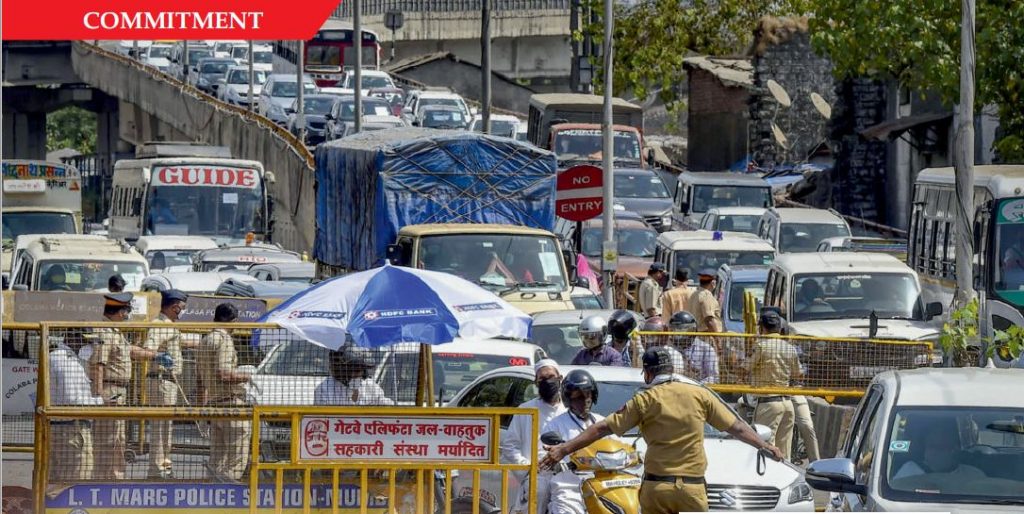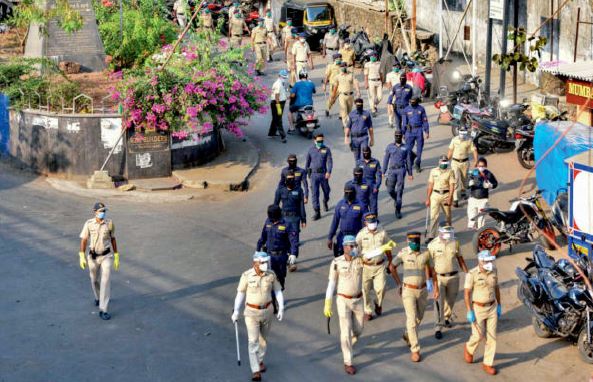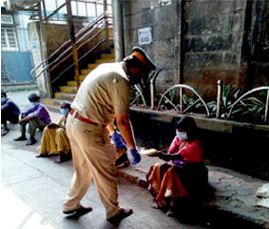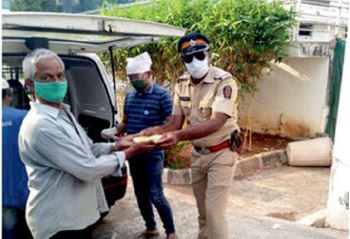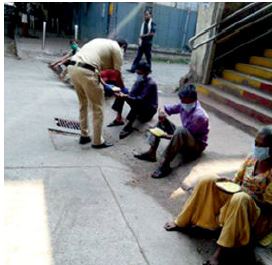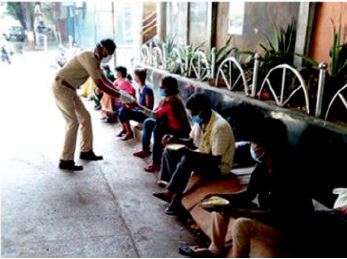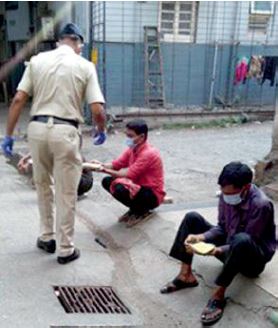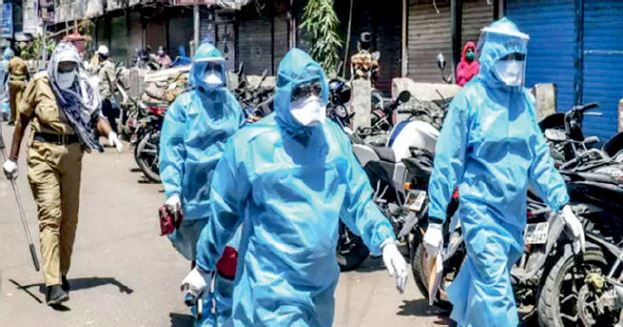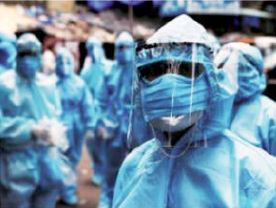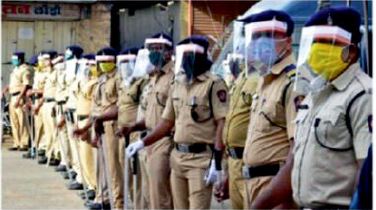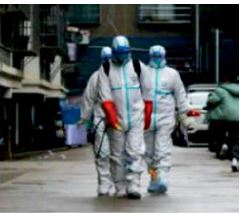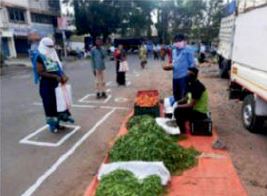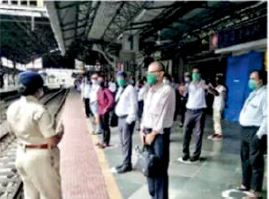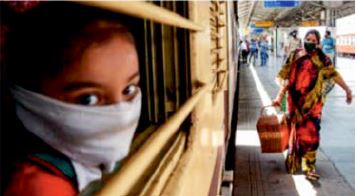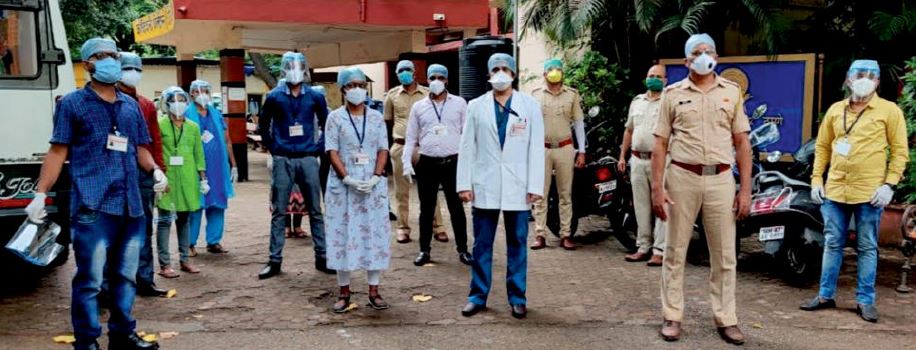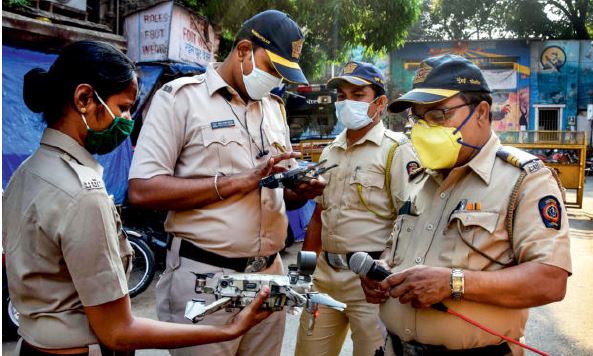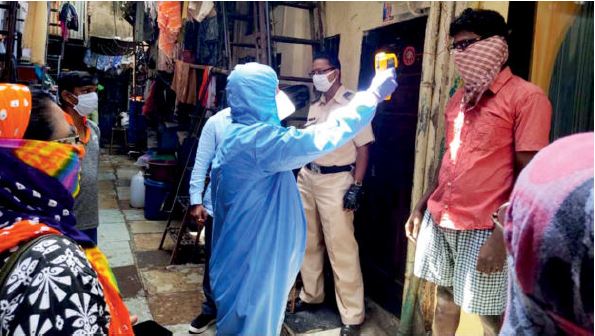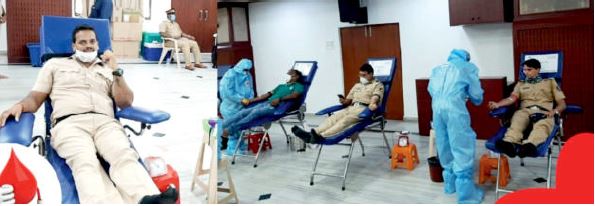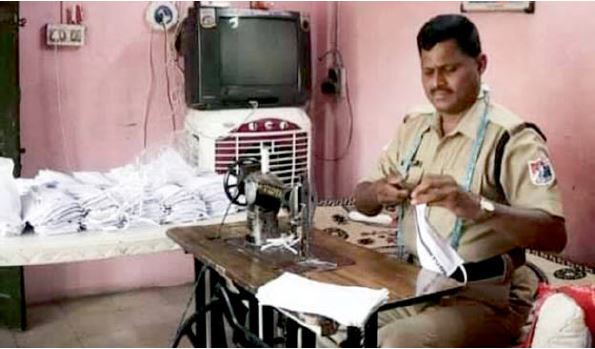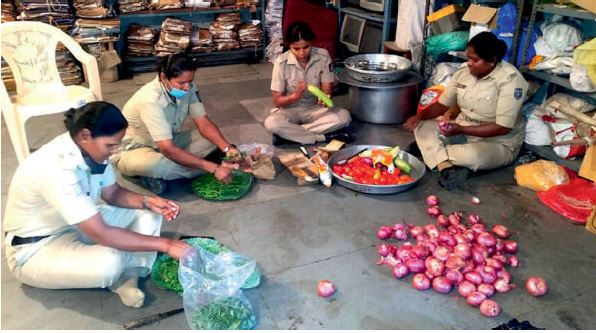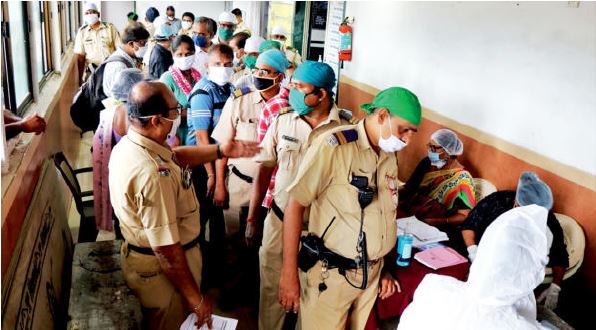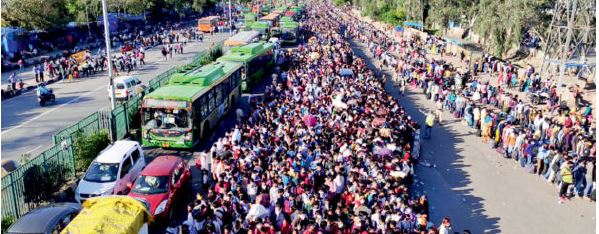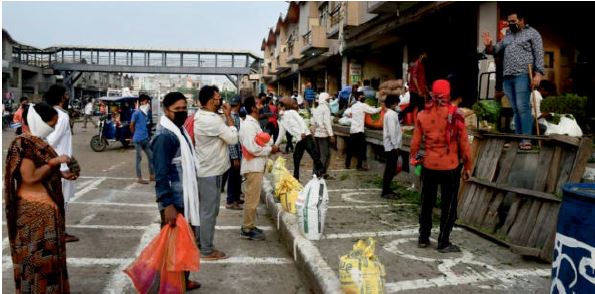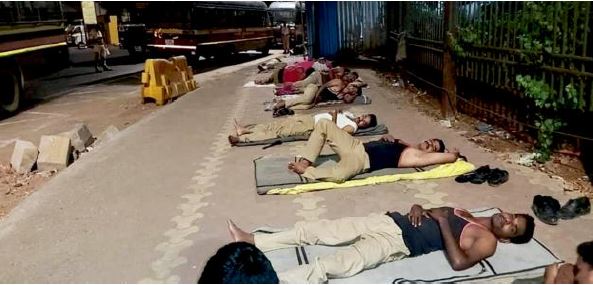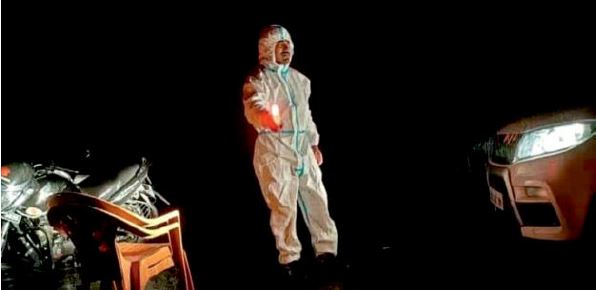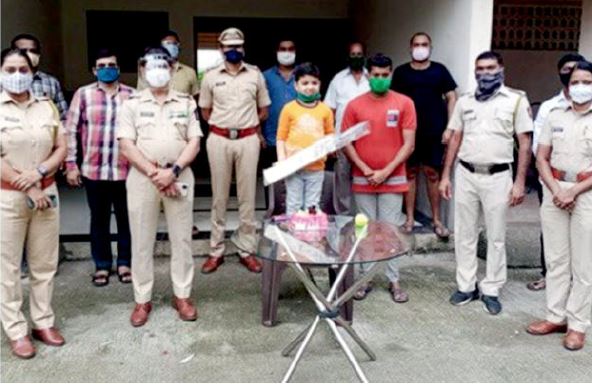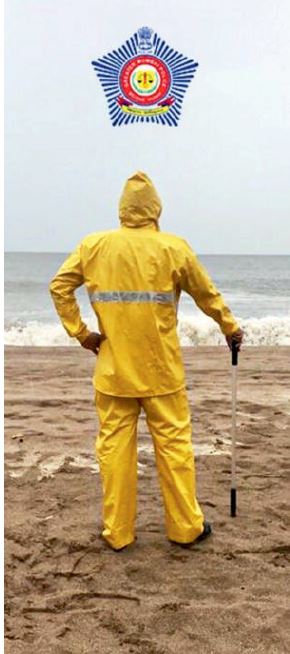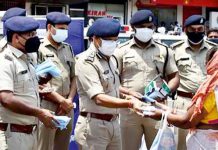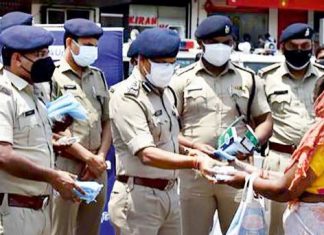
The terrifying situation that has gripped the world and our country since we entered 2020 has challenged police forces across India as much as the state of terror created in the country in 1993 and 2008 by the terror attacks perpetrated by internationally-spread-out terrorist groups to weaken India as it treads its way to reach the highest echelons of becoming a superior nation.
Since January this year, the country is facing a similar situation of fear and insecurity with the spread of the Novel Corona Virus, now commonly referred to as COVID-19. Indian police forces have been engaged in a ceaseless effort to maintain law and order as State Governments clamped lockdowns to safeguard its population from the contagion and consequent widespread of the flu. Hand-in-hand with the medical fraternity and para-medical healthcare workers, police forces have been shepherding victims as well as possible victims to follow protocols and guidelines laid down to check the spread of the infection and help them recover faster and completely.
Why are we comparing the current challenge with the constant threat of terrorism in the country?
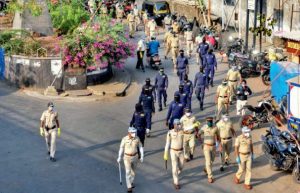 There cannot be a comparison undoubtedly. The threats of terrorism and the fight against terrorism are by no measure comparable to the threats of the pandemic which is taking precious lives due to the nonexistence of a preventive vaccine and a standard treatment with effective medicines and the community’s fight against its spread and its inevitable deadlier mutation in the natural course. Unlike terror attacks which are diabolically planned, executed and targeted, the pandemic is the result of the rapid spread of an unknown and novel viral flu in the form and dimensions of a calamity that has struck unexpectedly and devastatingly.
There cannot be a comparison undoubtedly. The threats of terrorism and the fight against terrorism are by no measure comparable to the threats of the pandemic which is taking precious lives due to the nonexistence of a preventive vaccine and a standard treatment with effective medicines and the community’s fight against its spread and its inevitable deadlier mutation in the natural course. Unlike terror attacks which are diabolically planned, executed and targeted, the pandemic is the result of the rapid spread of an unknown and novel viral flu in the form and dimensions of a calamity that has struck unexpectedly and devastatingly.
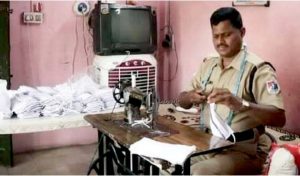 The similarity we are noting is in the manner in which the police forces are once again on duty round-the-clock fulfilling their duty as protectors and regulators of the society; facing unfair criticism and public anger, while they struggle to maintain stability and security in a society stressed by the fear of a new, unseen enemy.
The similarity we are noting is in the manner in which the police forces are once again on duty round-the-clock fulfilling their duty as protectors and regulators of the society; facing unfair criticism and public anger, while they struggle to maintain stability and security in a society stressed by the fear of a new, unseen enemy.
The only difference is that a terrorist is a human being, physically discernible and a mortal enemy, while the novel coronavirus is a tiny organism invisible to the naked eye capable of stealth transfer from person to person during a pandemic outbreak, causing death in cases where the infected victims are not healthy enough to fight the fatal onslaught of the virus on the respiratory organs. A terrorist can be apprehended, arrested, lodged in prison, tried in a court of law and sentenced to death or life imprisonment. But how do you take on a virus and stop it from infecting a human victim whose cells the virus needs to attach itself to for its survival and reprogramming? And how does a policeman protect and educate the common man in such a volatile situation wherein so little is known and observed about the enemy, while at the same time, counter the countless alarming theories.
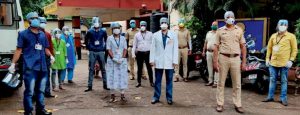 Even as doctors, nurses and social workers are jointly working to take care of the sick patients, it is the policeman or policewoman on duty who is maintaining discipline and mandatory safeguards required in such pandemic situations to prevent infection cases from rising. Unfortunately, in a critical lockdown situation, unlike a terror attack situation, the policeman is seen less like a brave hero and more as a tough law enforcer who is curbing the free movement of people. Only the educated common man can appreciate the personal sacrifice of the policeman or policewoman who is as exposed to the viral infection as healthcare workers and social workers.
Even as doctors, nurses and social workers are jointly working to take care of the sick patients, it is the policeman or policewoman on duty who is maintaining discipline and mandatory safeguards required in such pandemic situations to prevent infection cases from rising. Unfortunately, in a critical lockdown situation, unlike a terror attack situation, the policeman is seen less like a brave hero and more as a tough law enforcer who is curbing the free movement of people. Only the educated common man can appreciate the personal sacrifice of the policeman or policewoman who is as exposed to the viral infection as healthcare workers and social workers.
According to the latest statistics, the total number of cops in Maharashtra who have been infected while on duty has crossed 25,079. Recoveries stand at 22,614 plus, casualty at over 260, and over 2025 of them are under treatment in overcrowded, ill-equipped hospitals in rural, semi-rural centres and towns.
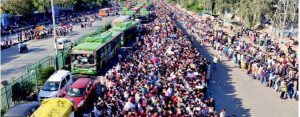 Despite all the difficulties, occupational hazards and loss of immunity resulting from overwork and lack of rest and sleep, the men and women in khaki are at work along with the men and women in the medical profession and other essential services, including the services of the Municipal Corporation.
Despite all the difficulties, occupational hazards and loss of immunity resulting from overwork and lack of rest and sleep, the men and women in khaki are at work along with the men and women in the medical profession and other essential services, including the services of the Municipal Corporation.

